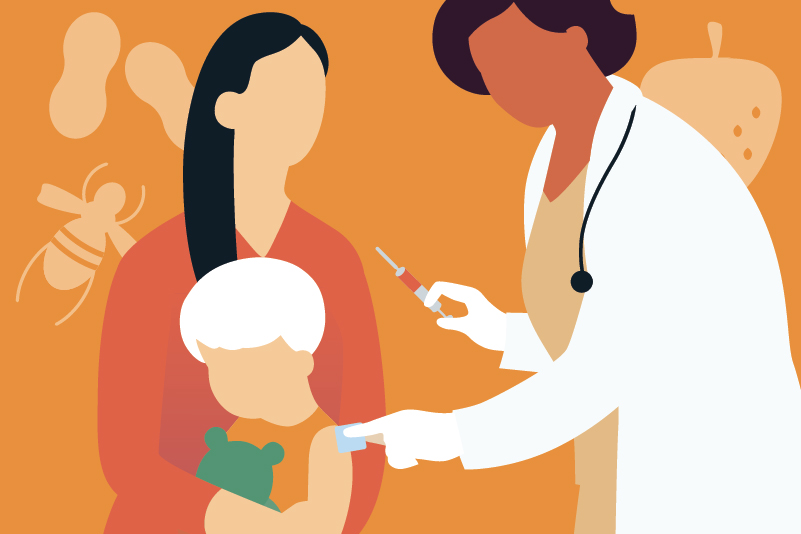#197 Early Peanuts for Little Peanuts: The not-so-paltry benefits

Reading Tools for Practice Article can earn you MainPro+ Credits
Join NowAlready a CFPCLearn Member? Log in
- Randomized Controlled Trials:
- 640 high-risk infants (severe eczema, egg allergy, or both) aged 4-11 months, randomized to consumption (6 g peanuts/week) or avoidance.1 At five years:
- Positive oral food challenge to peanuts: 3.2% consumption versus 17.2% avoidance, Number Needed to Treat=8.
- Harms: Consumption group underwent baseline food challenge, 7/319 infants reacted, (six required antihistamine, one oral steroids). At five years, one child in avoidance group required epinephrine following oral food challenge.
- Limitations: No placebo, infants excluded if SPT >4 mm (9% of infants).
- Normal-risk, breastfed infants (n=1,303) aged three months randomized to early introduction of six allergens (example 2 g peanuts/week) or avoidance of allergenic foods before six months.2
- At 1-3 years of age, no significant difference in positive oral food challenge:
- Peanuts: 1.2% early versus 2.5% avoidance.
- Limitations: Complex protocol led to significant difference in adherence (43% early versus 93% avoidance); excluded infants with peanut sensitization (SPT >0 mm).
- At 1-3 years of age, no significant difference in positive oral food challenge:
- 640 high-risk infants (severe eczema, egg allergy, or both) aged 4-11 months, randomized to consumption (6 g peanuts/week) or avoidance.1 At five years:
- Observational study:
- Newborns (n=2,124) followed to examine food introduction timing and sensitization.3 Peanut avoidance during first year increased risk for:
- Peanut sensitization (SPT >2 mm): Odds Ratio 1.76 (1.07-3.01).
- Limitations: Potential recall bias, confirmatory oral food challenges not done.
- Newborns (n=2,124) followed to examine food introduction timing and sensitization.3 Peanut avoidance during first year increased risk for:
- Early exposure hypothesis came from the 10x lower risk of peanut allergy among Israeli compared to UK children. Israeli children had greater intake of peanuts during infancy (7.1 g/month versus 0 g/month).4
- Large cohort study (10,907 participants) suggested a lower risk of peanut allergy in offspring of non-allergenic mothers who had increased peanut consumption during pregnancy, ≥5 times per weeks versus <1 per month, Odds Ratio 0.31 (0.13-0.75).5
- Guidelines recommend not restricting maternal diet or delaying food allergen introduction in high-risk infants.6,7














